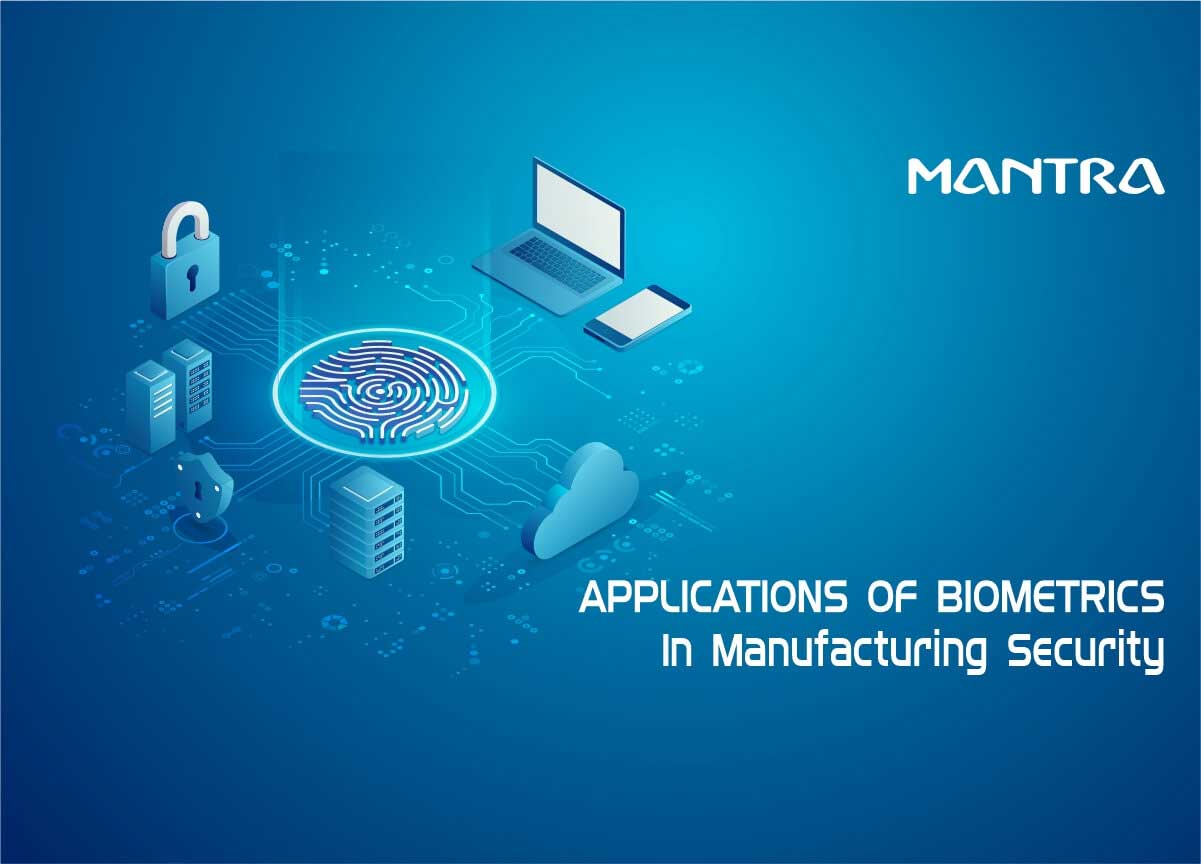
Industry 4.0 is at the doorsteps of manufacturing and production plants. Manufacturing units are rapidly automating to increase production capabilities. The automation of the manufacturing devices with increased connectivity using IoT services has forced to adapt new security architecture in production units. According to a survey conducted by EEF (Engineering Employees Federation) industry organization in 2018 implies that 48% of manufacturers have encountered cyber-attack. As a result of the attack, 24% of those who have experienced hacking have suffered financial or customer losses.
PINs, passwords, or manual keys are used in traditional security systems to secure devices and confidential areas. These are shareable data, so there won't be certainty in deciding who was operating the machine. In the event of an accident, an audit or investigation does not provide relevant operator information. Meanwhile, biometrics could be utilized to improve the security of manufacturing facilities. Biometric systems can incorporate physical and logical access security and provide a more centralized and integrated solution.
Biometric technology to improve manufacturing security
Biometric technology is used for various applications in the current world, primarily for verification, authentication, and access control applications. In the manufacturing environment, biometrics has all of the applications required in various scenarios. Let's check them out.
Biometrics for attendance marking
Nowadays, many companies already use fingerprint punching machines for attendance marking. What is so special about manufacturing plants? In manufacturing or construction sites, employees may use gloves, or their hands could be greasy or dusty, making it difficult to recognize the fingerprint scanner.
So what is the solution for manufacturing plants? Facial recognition or Iris scanner. Both the biometric modalities are contactless. AI-supported face recognition can read faces that use masks or dust-absorbed faces.
Biometric logins to prevent cyber attacks
Manufacturers are digitalizing their data, including confidential data about manufacturing techniques. These data are now the target of cyber-criminals because these data are needed for competitors. Once the hacker gets access to the industrial network, they will have a way to crucial systems, PLCs, HMI (human-machine interface), and to different electronic equipment, etc. According to this, various passwords and PINs are not very secure because hackers can crack these passwords easily. Studies also suggest that biometric authentication is more secure than these traditional authentication methods.
Biometric modalities such as fingerprint, facial recognition, palm scanner, or iris scanners authenticate authorized users to use PCs and machinery in manufacturing plants. In addition, various devices will be used remotely at different locations around the factory and exposed to all employees, but only authorized personnel are permitted to use them. Securing such systems with passwords or PINs is not a reliable means of authentication. Biometrics is a must-have authentication method for such devices.
Biometric to secure restricted areas
In manufacturing plants with extensive use of oil and gas, chemicals, and heavy machinery, risk increases by multi-folds. In such a case, only well-trained people are allowed to enter the control room and operate.
Biometric authentication can ensure that only the right individual has access to restricted locations. Unnecessary accidents and other troubles can prevent by utilizing biometric access control.
Tool access
Tools in the wrong hands can cause mishaps at the worksite. Biometrics can be used to secure safes and cabinets that keep tools and accessories. Also, devices like calibrators, drillers, and almost all electronics can be secured using embedded biometric sensors.
Endnote
Different types of biometric devices may be required for a manufacturing unit, such as facial recognition cameras for access control systems, biologin devices, iris scanners-based access control for highly secured areas, and so on. For your specific requirements, all you need to do is fill up the inquiry form. We assure you that we will deliver a robust tailor-made solution for your business.
Sithika Roy
Hi I am sithika roy
Reply